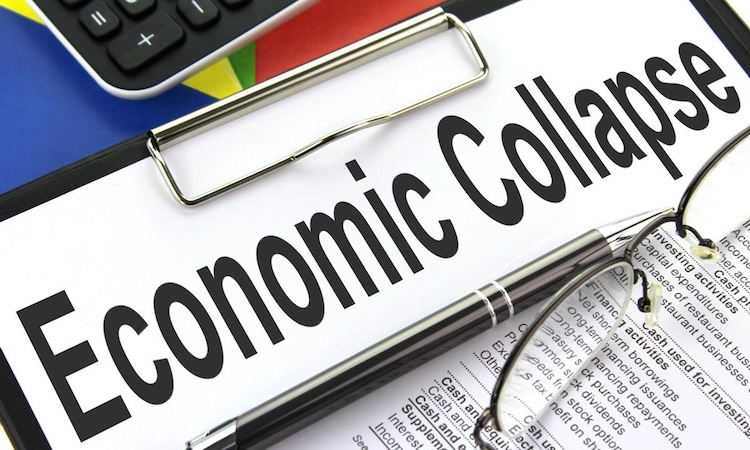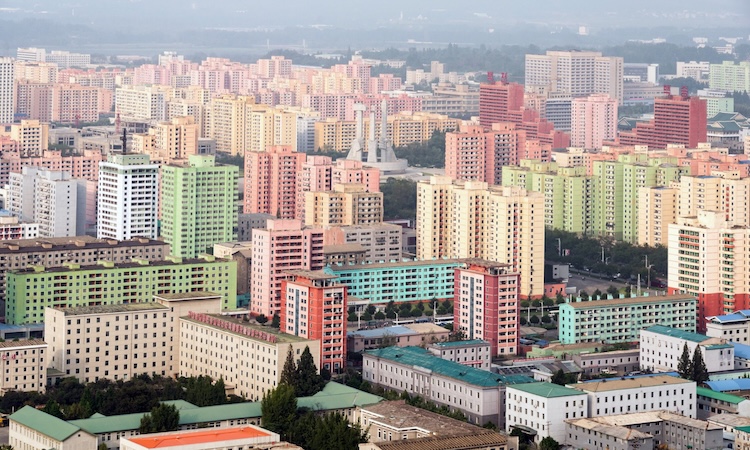Download this leaflet as a pdf.
With the cost of living soaring, public services falling apart and anger growing, our rulers are blaming, in equal measure, the workers (for daring to defend their wages) and Vladimir Putin (for daring to resist Nato).
Tory chair Nadhim Zahawi recently blamed both, declaring that nurses have chosen the ‘wrong time’ to strike over poverty pay because a rise will ‘increase inflation’ and ‘help Vladimir Putin divide the west’.
No doubt he feels that kids going without school shoes, or dinner, or a warm place to sleep, should be happy to suffer in the interests of helping their parents’ exploiters.
It’s noticeable that no one suggests inflation might be caused by the huge pay packets and bonuses that CEOs routinely award themselves, piling up record wealth while expecting workers to take drastic cuts.
Money-printing
Capitalist economists try to hide the fact that the biggest driver of inflation has been endless money-printing, which was ramped up to bail out the banks in 2008 and hasn’t stopped since. As this failing system lurches from crisis to crisis, the Bank of England has bailed out one monopoly-dominated section of the economy after another. (Eg: the ‘Covid’ stock market bail-out and big pharma subsidies of 2020.)
As the economic crisis deepens, more enormous handouts are pouring into the coffers of the energy companies (via the ‘price cap’) and the arms manufacturers (‘standing with Ukraine’).
‘Just in time’ = no contingency
Covid supply disruptions also fuelled inflation, as the capitalist ‘efficiency’ of ‘just in time’ met the hard reality of closed factories and ports. The just-in-time system is finely tuned to optimise profit at every stage, but is hugely vulnerable to even a single day’s disruption (of whatever kind).
The chaos created by a succession of ‘freak’ (but entirely foreseeable) events led to disruption that is still causing chaos and inflation worldwide. The profitable (for monopolies) practice of abolishing all contingency planning and warehouse space has turned out to be extremely expensive for humanity at large.
Monopoly price gouging
We are always told that capitalism brings prices down – through the battle of competition, economies of scale, and using the cheapest possible labour. But if big monopolies get into a position where they can keep prices high, they will take it – often via secret agreements with competitors.
Notice, for example, how it only takes the rumour of a potential, future disruption in the oil supply for prices at the pumps or on the meter to go up. And if this is followed by a small ‘correction’, the price never seems to go back to where it was before. The line over time for such monopoly-controlled essentials only seems to go upwards.
Economic warfare backfiring
Imperialist countries have been using economic power to starve independent-minded countries into submission for decades, but ratcheting up this blunt weapon against Russia and China has forced both countries to take steps to protect themselves.
In the process, they have made their economies more diverse, self-sufficient and resilient – and also created a framework that allows other countries to do the same. The weapon that was supposed to ensure US domination forever has ended up accelerating the process of the imperialists’ decline.
When Russia finally (after eight years of a failed peace process) responded to the proxy war being waged against it, the west launched a massive sanctions war, which it confidently believed would swiftly bring Russia to its knees, collapsing its economy, starving its people onto the streets, and toppling the hated Putin government.
The result was supposed to be the installation of a stooge regime in the Kremlin, the break-up of Russia into seven or eight manageable chunks, and an orgy of looting of its people and resources – just like the one that followed the Soviet collapse in 1991.
When Russian society failed to implode, the sanctions began to hurt those who were wielding them far more than they were hurting Russia itself. While Russia found new markets for export commodities such as oil, gas, minerals, wheat and fertiliser, the absolute dependence of western industries on these materials was starkly revealed.
How many of us had previously understood that Germany’s industrial strength rested on the flow of low-cost oil from the Urals? How many knew that the engines and refineries powering Europe are built around the specific features of this oil, and that there is no readily available alternative?
Making workers pay
So while some of the inflation we’re experiencing has been caused by the war against Russia, it’s quite a stretch to blame the intended victim of Nato’s aggression for the inflationary consequences of Nato’s war.
Nor is it right to blame workers. Marx proved long ago that high wages are not the ultimate cause of inflation. High wages simply reduce profit margins. Under our present conditions, it’s a fundamental right and duty of workers to organise and demand a bigger share of the wealth their own labour has created. The brilliant example being set in this regard by rail workers, posties, health workers and others is an uncomfortable reminder to our rulers that the working class has not gone away.
We are repeatedly told that ‘a 1 percent raise for NHS workers costs £700m’, but nobody is invited to question the cost in blood or treasure of the hi-tech killing machines being fed into the Ukraine meatgrinder.
No parliamentarian of any political stripe – Labour or Tory – is prepared to break with the holy consensus: blame greedy workers and evil Russian dictators, and don’t talk about the capitalist crisis or the class war.
Labour health spokesman Wes Streeting recently accused the doctors’ union of promoting a “something for nothing” culture, while Keir Starmer told a radio interviewer that the pay rise nurses are fighting for (5 percent over the current official RPI but a long way short of the real-terms pay cut they’ve suffered over the last 15 years) is “more than could be afforded”.
With their system in deep crisis, our rulers have only two ways out: pass as much as possible of the burden onto the poor, and search ruthlessly around the globe for other ways to make a profit.
That might mean cutting wages to raise profits margins. Or putting poor workers onto prepay meters to wring a few more quid out of them. It might mean privatising healthcare and education so that the public purse can be rinsed for private profit.
Or it might mean driving to war against any and every country where maximum profit-taking is impeded by some independent-minded people who have the cheek to think it’s up to them how their resources are used.
Either way, it is the workers who pay, and the poorest who pay the most.
Ultimately, we need to recognise the fact that workers’ problems can only really be solved when we move on from the demand for ‘fair wages’ and take up the struggle for an ‘end to the wages system’: that is, for an end to the system of workers’ enslavement to the capitalist class, whose wealth is built upon our poverty.
——————————
Urgent measures needed
With the crisis deepening by the day, we must demand urgent measures to address the cost of living for workers and stop ordinary people from bearing the burden of a crisis that was not of their making.
We demand:
- Nationalisation of ALL utilities (without compensation) along with monopoly producers, manufacturers and distributors of food so as to ensure a secure supply of all necessaries at affordable prices, free from the vacillations and disruptions of the world market.
- Requisition and building of social housing and introduction of a rent cap to address the housing crisis.
- Leaving Nato, bringing all troops and military contractors home, and ending all aspects of British involvement in aggressive wars abroad.
- Lifting the minimum wage to a level providing a decent family existence.
- Legislation for pay/benefit rises that keep pace with REAL inflation.
- An end to currency devaluation through endless money printing.
- An end to the self-defeating sanctions war against Russia, which is fuelling both the energy and the inflation crises.
- An end to all subsidies to monopoly corporations and banks. Any business considered ‘too big to fail’ or ‘necessary to the national economy’ that cannot make an adequate profit out of ordinary operations should be nationalised without compensation and run according to a plan based on meeting the needs of the people.
The market has proved itself to be totally unable to meet the needs of the people. The capitalists have shown themselves to be entirely unable to run their own system for the benefit of society.
Ultimately, only socialist science enables us to understand the causes of this crisis. And only socialist science can enable us to create a real working-class party that can bring workers’ power to bear in creating a society that not only solves the problems that press on us so heavily and urgently today, but actually offers us the prospect of a bright and fulfilling future.
______________________________















